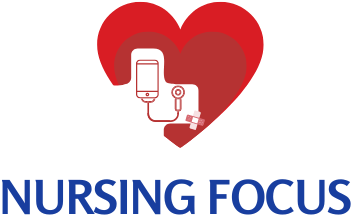A new-born’s arrival is a happy occasion, but it also presents special problems and healthcare requirements. Neonatal nurses are essential in these crucial times for providing specialized care to ensure the health and wellbeing of babies. The vital role of neonatal nurses, their specific training and knowledge, and the effects they have on the wellbeing of infants and their families will all be covered in this blog post.

Following are some of the important roles of neonatal nurses for new born:
1. Knowledge and Experience in Neonatal Health:
Neonatal nurses are highly knowledgeable and skilled in the care of babies. They are aware of the particular medical issues and difficulties that premature infants or newborns with medical issues may have. Neonatal nurses are trained to recognize, monitor, and treat a variety of diseases, including respiratory distress syndrome, jaundice, and congenital anomalies, with accuracy and care.
2. Providing Basic Medical assistance:
When it comes to giving neonates vital medical assistance, neonatal nurses are at the forefront. They help with important duties like monitoring vital signs, giving medications, and providing sufficient nutrition. They have experience operating specialized neonatal unit-specific tools and technologies such incubators, ventilators, and phototherapy lights. Their knowledge guarantees that infants receive the correct therapies and interventions for their unique medical requirements.

3. Supporting Families:
Neonatal nurses are essential in providing families with emotional and practical assistance during what can be a difficult period. They advise and instruct new parents on how to take care of their infants, including breastfeeding, safe sleeping habits, and developmental milestones. In the neonatal intensive care unit (NICU), neonatal nurses provide as a source of comfort and emotional support, guiding families through any doubts and fears.
4. Collaborative Care:
To provide complete care for babies, neonatal nurses collaborate closely with a multidisciplinary team of medical specialists. To create tailored care plans, they work with neonatologists, pediatricians, respiratory therapists, and social workers, among others. Neonatal nurses make sure that each newborn's care is coordinated and that all facets of their health and well-being are taken care of through excellent cooperation and communication.

5. Advocating for New-borns:
Neonatal nurses act as advocates for infants, making sure that their needs and rights are satisfied. On behalf of the infant, they interact with the medical staff, offering important details and updates on their condition. They promote family-centered care by supporting parental participation in the decision-making process. Neonatal nurses give parents the tools and support they need so they may take an active role in their baby's care.

Neonatal nurses are highly qualified and caring medical professionals who have a big impact on babies and their families' lives. They are able to give neonates the best treatment possible during life-or-death situations thanks to their specific knowledge, skill, and dedication. Neonatal nurses' constant care not only helps to ensure the immediate health and wellbeing of babies, but also offers solace and direction to families during a period of considerable uncertainty. Their dedication to excellence and crucial position on the neonatal care team make them priceless resources for the medical industry.

For more nursing tips and guidance kindly check out our mfocusreview.com website
To download our Nursing Focus app, click the following link:
Android Store:
https://play.google.com/store/apps/details?id=com.nursingfocus
Apple Store:
https://apps.apple.com/app/nursing-focus/id1633014109

